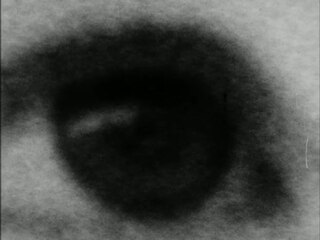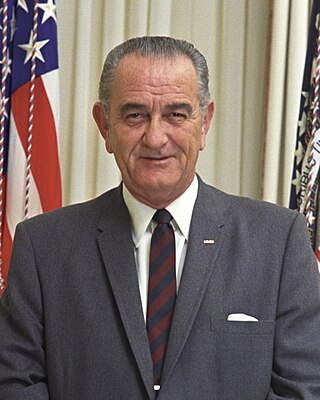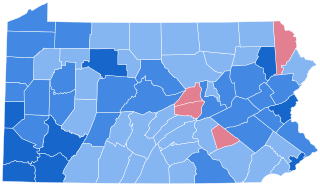
Nancy Beck Young (born November 8, 1963, Dallas) is an American historian. She is Moores Professor of History at University of Houston. [1]

Nancy Beck Young (born November 8, 1963, Dallas) is an American historian. She is Moores Professor of History at University of Houston. [1]
She graduated from Baylor University, and University of Texas at Austin. [2]
She taught at McKendree College . [3] [4]

Barry Morris Goldwater was an American politician and major general in the Air Force Reserve who served as a United States senator from 1953 to 1965 and 1969 to 1987, and was the Republican Party's nominee for president in 1964.

The 1964 United States presidential election was the 45th quadrennial presidential election. It was held on Tuesday, November 3, 1964. Incumbent Democratic President Lyndon B. Johnson defeated Republican Senator Barry Goldwater in a landslide victory. Johnson was the fourth and most recent vice president to succeed the presidency following the death of his predecessor and win a full term in his own right. Johnson won the largest share of the popular vote for the Democratic Party in history, 61.1%, and the highest for any candidate since the advent of widespread popular elections in 1824.

Lyndon Baines Johnson, often referred to by his initials LBJ, was an American politician who served as the 36th president of the United States from 1963 to 1969. He became president after the assassination of John F. Kennedy, under whom he had served as the 37th vice president from 1961 to 1963. A Democrat from Texas, Johnson also served as a U.S. representative and U.S. senator.

The history of the United States from 1964 to 1980 includes the climax and end of the Civil Rights Movement; the escalation and ending of the Vietnam War; the drama of a generational revolt with its sexual freedoms and use of drugs; and the continuation of the Cold War, with its Space Race to put a man on the Moon. The economy was prosperous and expanding until the recession of 1969–70, then faltered under new foreign competition and the 1973 oil crisis. American society was polarized by the ultimately futile war and by antiwar and antidraft protests, as well as by the shocking Watergate affair, which revealed corruption and gross misconduct at the highest level of government. By 1980 and the seizure of the American Embassy in Iran, including a failed rescue attempt by U.S. armed forces, there was a growing sense of national malaise.
New Right is a term for various right-wing political groups or policies in different countries during different periods. One prominent usage was to describe the emergence of certain Eastern European parties after the collapse of the Soviet Union. In the United States, the Second New Right campaigned against abortion, homosexuality, the Equal Rights Amendment (ERA), the Panama Canal Treaty, affirmative action, and most forms of taxation.

"Daisy", sometimes referred to as "Daisy Girl" or "Peace, Little Girl", is an American political advertisement that aired on television as part of Lyndon B. Johnson's 1964 presidential campaign. Though aired only once, it is considered one of the most important factors in Johnson's landslide victory over the Republican Party's candidate, Barry Goldwater, and a turning point in political and advertising history. A partnership between the Doyle Dane Bernbach agency and Tony Schwartz, the "Daisy" advertisement was designed to broadcast Johnson's anti-war and anti-nuclear positions. Goldwater was against the Nuclear Test Ban Treaty and suggested the use of nuclear weapons in the Vietnam War, if necessary. The Johnson campaign used Goldwater's speeches to imply he would wage a nuclear war.

Wilbur Joseph Cohen was an American social scientist and civil servant. He was one of the key architects in the creation and expansion of the American welfare state and was involved in the creation of both the New Deal and Great Society programs.

Barry Morris Goldwater Jr. is an American politician. He is a former Republican member of the United States House of Representatives from California, serving from 1969 to 1983. He is the son of U.S. Senator and 1964 Republican presidential nominee Barry Goldwater.
Cold War liberal is a term that was used in the United States during the Cold War, which began after the end of World War II. The term was used to describe liberal politicians and labor union leaders who supported democracy and equality. They supported the growth of labor unions, the civil rights movement, and the war on poverty and simultaneously opposing totalitarianism commonly seen under Communist rule at the time. Cold War liberals supported efforts of containment, such as diplomat George F. Kennan and U.S. president Harry S. Truman during the post-World War II era, towards Soviet Communism.
Liberalism in the United States is based on concepts of unalienable rights of the individual. The fundamental liberal ideals of freedom of the press, freedom of religion, the separation of church and state, the right to due process, and equality before the law are widely accepted as a common foundation of liberalism. It differs from liberalism worldwide because the United States has never had a resident hereditary aristocracy, and avoided much of the class warfare that characterized Europe. According to American philosopher Ian Adams, "all U.S. parties are liberal and always have been. Essentially they espouse classical liberalism, that is a form of democratised Whig constitutionalism plus the free market. The point of difference comes with the influence of social liberalism and the proper role of government."

Lyndon B. Johnson's tenure as the 36th president of the United States began on November 22, 1963, upon the assassination of president John F. Kennedy, and ended on January 20, 1969. He had been vice president for 1,036 days when he succeeded to the presidency. Johnson, a Democrat from Texas, ran for and won a full four-year term in the 1964 presidential election, in which he defeated Republican nominee Barry Goldwater in a landslide. Johnson did not run for a second full term in the 1968 presidential election because of his low popularity. He was succeeded by Republican Richard Nixon. His presidency marked the high tide of modern liberalism in the 20th century United States.
The 1964 presidential campaign of Barry Goldwater began when United States Senator Barry Goldwater of Arizona elected to seek the Republican Party nomination for President of the United States to challenge incumbent Democratic President Lyndon B. Johnson. Early on, before officially announcing his candidacy for the presidency, Goldwater was accused by Governor of New York Nelson Rockefeller of attempting to galvanize Southern and Western Republican support while neglecting the industrial northern states, eventually becoming one of Goldwater's primary opponents in the race for the Republican Party's nomination in 1964.

The 1964 United States presidential election in Rhode Island took place on November 3, 1964, as part of the 1964 United States presidential election, which was held throughout all 50 states and D.C. Voters chose four representatives, or electors to the Electoral College, who voted for president and vice president.

The 1964 United States presidential election in Pennsylvania took place on November 3, 1964, and was part of the 1964 United States presidential election. Voters chose 29 representatives to the Electoral College, who voted for president and vice president. Pennsylvania overwhelmingly voted for the Democratic nominee, President Lyndon B. Johnson, over the Republican nominee, Senator Barry Goldwater. Johnson won Pennsylvania by a margin of 30.22%. Apart from William Howard Taft in 1912, Goldwater's 34.7% of the vote is easily the worst showing for a Republican in the state since the party was founded. Even relative to Johnson's popular vote landslide, Pennsylvania came out as 7.64% more Democratic than the nation at-large; the only occasion under the current two-party system that the state has been more anomalously Democratic than this was in Ronald Reagan's 1984 landslide.

This timeline of modern American conservatism lists important events, developments and occurrences which have significantly affected conservatism in the United States. With the decline of the conservative wing of the Democratic Party after 1960, the movement is most closely associated with the Republican Party (GOP). Economic conservatives favor less government regulation, lower taxes and weaker labor unions while social conservatives focus on moral issues and neoconservatives focus on democracy worldwide. Conservatives generally distrust the United Nations and Europe and apart from the libertarian wing favor a strong military and give enthusiastic support to Israel.
This is a selective bibliography of conservatism in the United States covering the key political, intellectual and organizational themes that are dealt with in Conservatism in the United States. Google Scholar produces a listing of 93,000 scholarly books and articles on "American Conservatism" published since 2000. The titles below are found in the recommended further reading sections of the books and articles cited under "Surveys" and "Historiography." The "Historiography" and "Critical views" section mostly comprise items critical or hostile of American conservatism.

The 1964 United States presidential election in New Hampshire took place on November 5, 1964, as part of the 1964 United States presidential election, which was held throughout all 50 states and D.C. Voters chose four representatives, or electors to the Electoral College, who voted for president and vice president.

The 1964 United States presidential election in Maine took place on November 3, 1964, as part of the 1964 United States presidential election, which was held throughout all fifty states and D.C. Voters chose four representatives, or electors to the Electoral College, who voted for president and vice president.

Homa Jackson Porter, usually known as H. J. Porter or Jack Porter was a Texas businessman and political activist. A key figure in building a competitive Republican Party in his home state after a century of Democratic dominance, Porter was best known as Lyndon Johnson's general election opponent in the 1948 contest for a seat in the United States Senate.
The 1964 presidential campaign of Lyndon B. Johnson was a successful campaign for Johnson and his running mate Hubert Humphrey for their election as president and vice president of the United States. They defeated Republican presidential nominee Barry Goldwater and vice presidential nominee William Miller. Johnson, a Democrat and former vice president under John F. Kennedy was inaugurated as president upon Kennedy's assassination. In 1964, Johnson did not look optimistically upon the prospect of being elected president in his own right. Despite Johnson's uncertainty about running, he was seen as the most likely candidate to get the nomination. He entered the primaries starting with New Hampshire and won the state by almost 29,000 votes. Johnson's main opponent in the primaries was Alabama Governor George Wallace, who had announced his intention to seek the presidency even before Kennedy's assassination.